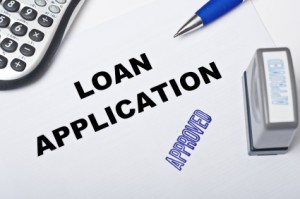 The Federal government has announced yet another new program designed to “keep homeowners in their homes.” Unfortunately, this program, which is scheduled to go into effect this fall, has so many loopholes that it looks like Swiss Cheese. Those loopholes may render it just as infective as previous government programs.
The Federal government has announced yet another new program designed to “keep homeowners in their homes.” Unfortunately, this program, which is scheduled to go into effect this fall, has so many loopholes that it looks like Swiss Cheese. Those loopholes may render it just as infective as previous government programs.
This is an FHA program designed to refinance non-FHA loans. It differs from HARP (the Home Affordable Refinance Program) in two significant ways:
- HARP prohibits a reduction in the borrowers loan balance – the new program demands at least a 10% reduction.
Interestingly, those who already have an FHA loan will be ineligible – because FHA rules specifically prohibit any reduction in loan balances.
- HARP allowed a loan-to-value ratio after refinance of up to 125% – the new program allows only 97.5%. However, when combined with a second mortgage, the homeowner may owe up to 115% of the home’s value.
Aside from qualifications such as being current on mortgage payments, occupancy of the home, a FICO score of at least 500, and income sufficient to make the new payment, this program requires cooperation that may or may not be forthcoming.
If there is a second mortgage, the second lien holder must agree to terms that have yet to be announced. If these terms are similar to those set forth in HAFA (the Home Affordable Foreclosure Alternatives program), then those second lien holders may be expected to walk away with very little return.
And finally, the first mortgage holders don’t have to cooperate. They will be required to reduce the principal balance to 97.5% of the home’s value – a reduction of at least 10% and in some cases considerably more. Homeowners in some of the hardest hit communities now owe twice what their homes are worth in the current market.
But… perhaps they will all cooperate, because the FHA fact sheet http://makinghomeaffordable.gov/docs/FHA_Refinance_Fact_Sheet_032510%20FINAL2.pdf notes the following:
“TARP funds will be made available up to a total of $14 billion to provide incentives to support writedowns of second liens and encourage participation by servicers, and to provide additional coverage for a share of potential losses on these loans.
The amount of relief given will probably be the deciding factor as once again, the taxpayers are forced to come to the aid of the banks.
Homeowners considering loan modification should remember that any mortgage debt written off will appear on their credit reports and will negatively affect credit scores for several years into the future.
Author: Mike Clover
CreditScoreQuick.com your resource for credit cards, credit reports and credit news.



